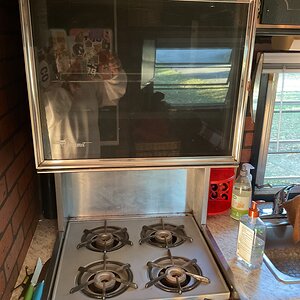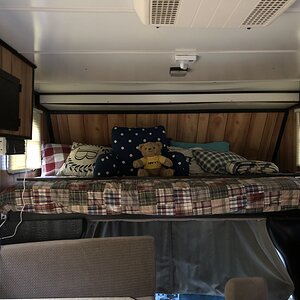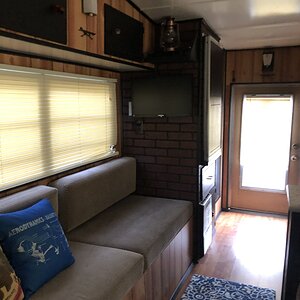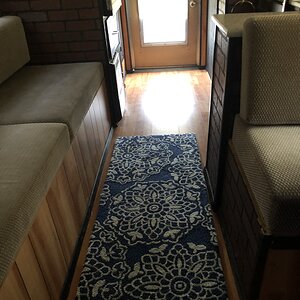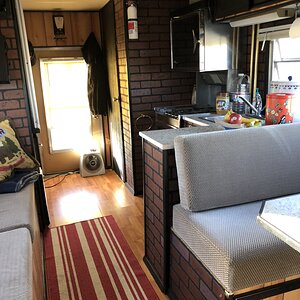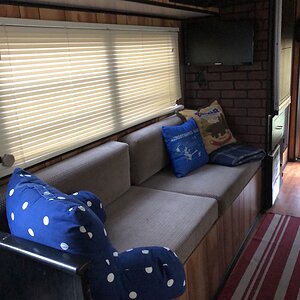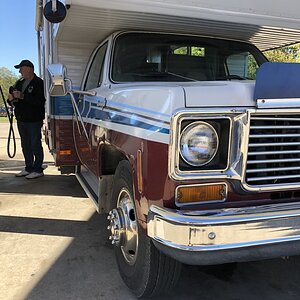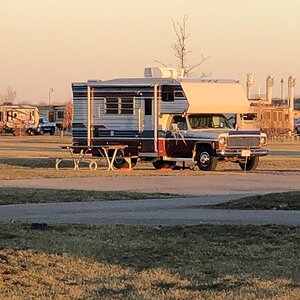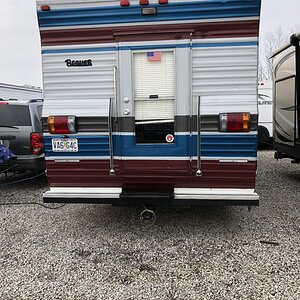B & J T
RVF Regular
- Joined
- Aug 16, 2021
- Messages
- 73
- Location
- Broken Arrow
- RV Year
- 2020
- RV Make
- Newmar
- RV Model
- New Aire
- RV Length
- 35
- TOW/TOAD
- Jeep Rubicon
I expect this to be a struggle as I am ignorant in all things electrical especially when it comes to RV's. Quick back story...we bought our 2020 Newmar New Aire in the fall of 2020 (our first RV). In January of 2021 it showed signs of house and chassis batteries not staying charged but it was explained away by the 30 amp service we were plugged into having a tripped breaker (we store The Beauty at the dealership). I visit every 3-4 weeks and say hello and start her up. No issues until June 2021 right before we were to depart for Colorado. Gremlin reappears and we found several dry cells in the coach battery bank and replace them along with the two chassis batteries. We think we're golden, take several trips and no problems.
Fast forward to last week. I've still be going out and starting her every 3-4 weeks. Last week they have it in the shop to do some warranty work and had to jump if off to start. Back to the 30 amp storage breaker must have flipped. They finish the work and I drive it to the house on Tuesday as we were going to do a short trip locally with grandsons (see Where are you with your Newmar today thread). On Tuesday everything seems nominal, generator runs, one AC unit running while we prep and I turn everything off for the night. The next day we barely have 8v across each sets of battery, nothing starts. Keep in mind I'm plugged into our house 110v service so I'm thinking the batteries should be getting a trickle charge. For safety reasons the inverter is shut off (?). After charging both house and chassis batteries all day I get it started early evening and let things run for a couple of hours. Everything looks great. Until the next morning (Wednesday) and we're back where we were the previous morning. The dealership sends out a tech (great guy and very knowledgeable) and we get things started. He believes everything should be fine and we should go (my wife had her car to transport grans so I'm not overly concerned about being stranded plus the RV parks is just over an hour from the house).
We return home Friday, everything seems fine as we had 50 amp service at the park (much needed with the ACs running nearly none stop!). On Sunday we're below enough juice to turn the engine (~11.2v across the chassis batteries) and put back into storage. It was plugged into our house 110. I recharge them all day and get it started Sunday evening and let things run for a couple of hours again. Everything is fine and I shut it off. Monday morning, same thing but I get it started again and back to the dealer and storage. Keep in mind all the batteries are about one year old. Also to note The Beauty has solar panels so it has the additional source to keep batteries topped off.
I know too long but any ideas or suggestions to try? The dealership is working it but I'd like to learn more to ask the right questions. Sure would like to hear your ideas.
Fast forward to last week. I've still be going out and starting her every 3-4 weeks. Last week they have it in the shop to do some warranty work and had to jump if off to start. Back to the 30 amp storage breaker must have flipped. They finish the work and I drive it to the house on Tuesday as we were going to do a short trip locally with grandsons (see Where are you with your Newmar today thread). On Tuesday everything seems nominal, generator runs, one AC unit running while we prep and I turn everything off for the night. The next day we barely have 8v across each sets of battery, nothing starts. Keep in mind I'm plugged into our house 110v service so I'm thinking the batteries should be getting a trickle charge. For safety reasons the inverter is shut off (?). After charging both house and chassis batteries all day I get it started early evening and let things run for a couple of hours. Everything looks great. Until the next morning (Wednesday) and we're back where we were the previous morning. The dealership sends out a tech (great guy and very knowledgeable) and we get things started. He believes everything should be fine and we should go (my wife had her car to transport grans so I'm not overly concerned about being stranded plus the RV parks is just over an hour from the house).
We return home Friday, everything seems fine as we had 50 amp service at the park (much needed with the ACs running nearly none stop!). On Sunday we're below enough juice to turn the engine (~11.2v across the chassis batteries) and put back into storage. It was plugged into our house 110. I recharge them all day and get it started Sunday evening and let things run for a couple of hours again. Everything is fine and I shut it off. Monday morning, same thing but I get it started again and back to the dealer and storage. Keep in mind all the batteries are about one year old. Also to note The Beauty has solar panels so it has the additional source to keep batteries topped off.
I know too long but any ideas or suggestions to try? The dealership is working it but I'd like to learn more to ask the right questions. Sure would like to hear your ideas.

